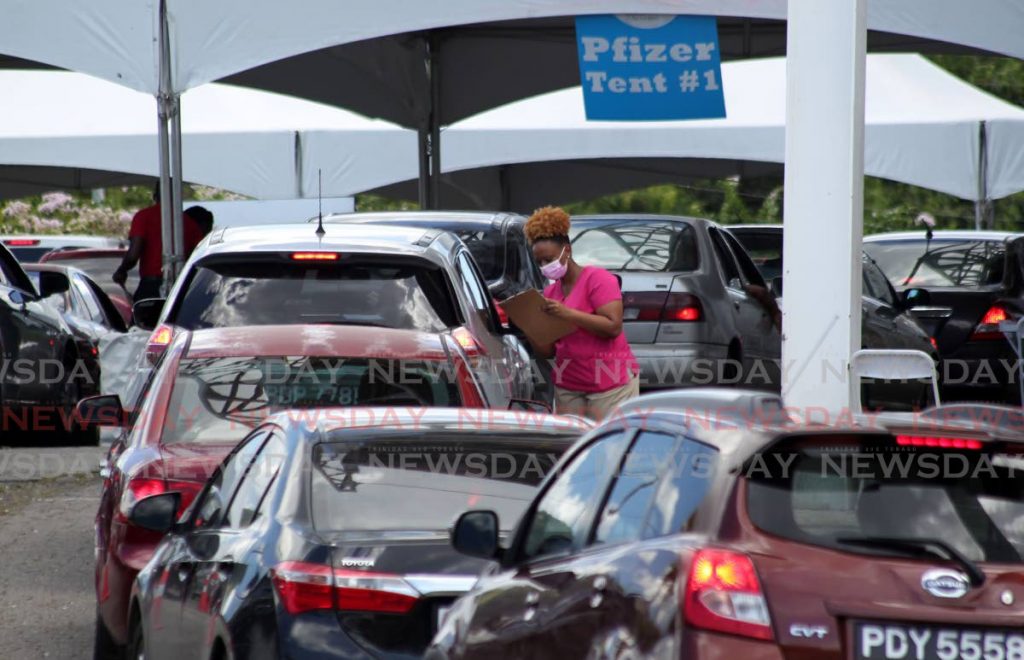Trade unions stand by right to choose to take covid19 vaccines or not

Several stakeholders, including business chambers, have described a meeting hosted on Monday by the Ministry of Planning and Development on safe zones and a policy on vaccinations in the workplace as fruitful. But the federation of unions, including JTUM, NATUC and FITUN, has maintained its position that people should have the right to choose whether or not to take a covid19 vaccine.
“At yesterday’s meeting the federations reiterated its clear position against mandatory vaccination,” said the federation in a release sent on Tuesday. “We continue to support a person’s right to choose.”
The federation said without a clear framework for safe zones and workplace vaccinations it could not support the idea of safe zones where patrons and employees alike are vaccinated.
The unions also said they were against extending the safe-zone measures to any other already opened industry.
“It must be reminded that the federations have been at the forefront in initiating discussions on an appropriate workplace policy in a covid19 environment as exemplified by our engagement with the joint chambers and the ECA (Employers Consultative Association). The main objective is to have proper job risk assessment conducted in specific workplaces in order to avoid risk exposure."
In a presentation at the meeting, Planning and Development Minister Camille Robinson-Regis explained the benefits of a fully vaccinated population.
“At the macro scale, the socio-economic benefits of having a fully vaccinated workforce involves better physical and mental health, increased earning capacity and greater opportunities for vaccinated service providers to operate freely in the economy,” Robinson-Regis said in a subsequent release.
“According to the Central Bank..., the short-term economic outlook will be directly impacted by the path of the covid19 virus and our response domestically. It is possible that gradual ease of restrictions on movement and business activity from now could see, by the end of this year, a meaningful recovery of non-energy output lost during the first two and a half quarters of the year.”
TT Chamber of Commerce head Gabriel Faria said while no concrete decisions were made on vaccination policies and safe zones, Monday's meeting laid a framework for the conversation moving forward.
He noted, however, that covid19 variants have already changed the definition of what is considered an acceptable percentage of vaccinated citizens to trigger herd immunity and as the delta variant continues to spread locally, it could also change the definition of what is considered a safe area and a high-risk area.
“Right now a high-risk area is a place where you would have to take off your mask to eat and drink. But in a month’s time, if we recognise that the variant is becoming more pervasive, you may find that a place that is not considered high-risk today may be.
“While we could make some preliminary decisions, any decisions would have to evolve as the pandemic changes,” Faria said.
American Chamber of Commerce CEO Nirad Tiwarie welcomed that government was working on a policy and that the Occupational Safety and Health Agency would also be prepared to review risk assessments done by businesses.
He said the meeting was chaired in a way that allowed for all stakeholders to express their views freely.
He added that there was consensus on the necessity of a vaccination policy based on the risk of spread which comes with each individual business.
“Ultimately, no one disagreed that in some cases site-specific mandatory vaccinations may be necessary if risk is assessed as warranting such action.”

Comments
"Trade unions stand by right to choose to take covid19 vaccines or not"